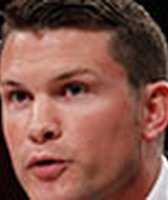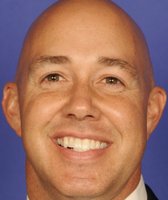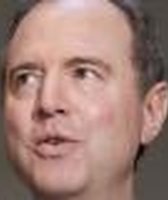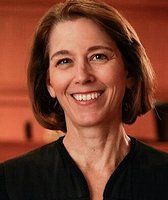Stand up for the facts!
Our only agenda is to publish the truth so you can be an informed participant in democracy.
We need your help.
I would like to contribute
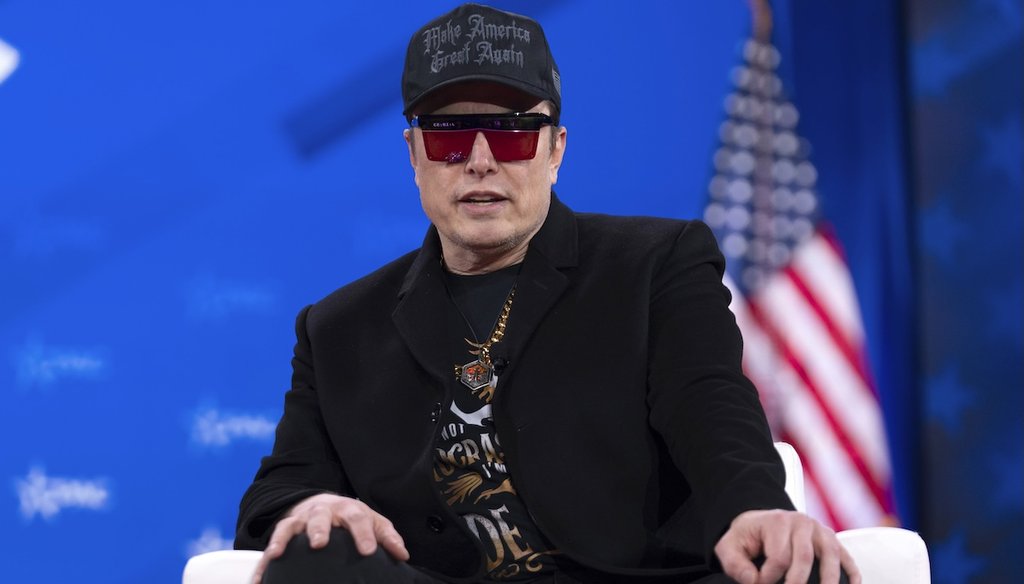
Elon Musk speaks at the Conservative Political Action Conference, CPAC, at the Gaylord National Resort & Convention Center, Feb. 20, 2025, in Oxon Hill, Md. (AP)
If Your Time is short
-
Elon Musk’s America PAC initially said it will pay $100 to Wisconsin registered voters who sign a petition opposing “activist judges.” Later, the PAC announced it paid $1 million to one petition signer.
-
In a subsequent post Musk said at an event he will “hand over two checks for a million dollars each in appreciation for you taking the time to vote.” But then he walked that back and said the payment would be for signing a petition.
-
Wisconsin law says it’s illegal to give anything of value to persuade electors to vote for or against a candidate. The petition does not name any candidates on the state’s April 1 ballot.
Days before a hotly contested Wisconsin state Supreme Court election, billionaire and White House adviser Elon Musk announced that he will give a talk in Wisconsin Sunday night and pay two voters $1 million.
"Entrance is limited to those who have voted in the Supreme Court election," stated the early morning March 28 X post. "I will also personally hand over two checks for a million dollars each in appreciation for you taking the time to vote."
Hours later, Musk deleted the post, perhaps out of legal concerns, and reverted to a previous payment offer.
"To clarify a previous post, entrance is limited to those who have signed the petition in opposition to activist judges," Musk wrote. "I will also hand over checks for a million dollars to 2 people to be spokesmen for the petition."
Wisconsin election law experts raised concerns about offers by Musk’s PAC to pay voters to sign petitions rejecting "activist judges," though some said it could be a gray area since it didn’t expressly tell them to vote. Musk saying that he would pay two people for "taking the time to vote" raised more serious red flags, they said.
Sign up for PolitiFact texts
"That almost certainly violates Wisconsin’s election bribery statute, which prohibits giving or offering anything of value to induce someone to vote," said Bryna Godar, staff attorney at the State Democracy Research Initiative at the University of Wisconsin Law School.
Wisconsin Attorney General Josh Kaul, a Democrat, issued a statement after Musk’s post to award $1 million to two people, saying "we intend to take legal action today to seek a court order to stop this from happening."
Technically, the state Supreme Court race is nonpartisan, but the outcome will determine whether the court maintains its current 4-3 liberal majority or flips conservative. President Donald Trump endorsed conservative Waukesha County Judge Brad Schimel, who faces liberal Dane County Judge Susan Crawford. Former President Barack Obama urged voters in a March 25 X post to vote for Crawford.
Musk supports Schimel. Musk’s America PAC said March 20 it will pay Wisconsin voters $100 if they sign a petition rejecting "activist judges" or refer another voter to sign it by April 1, the election date. About a week later, Musk announced that his political action committee paid $1 million to a voter who signed the petition, reviving a strategy he used in the presidential race. The committee posted a video of the voter, Scott Ainsworth from Green Bay, saying, "Everyone should do what I did; Sign the petition, refer your friends, get out and vote early for Brad Schimel."
Wisconsin campaign records show that Musk and his groups — America PAC and Building America’s Future — have spent about $20 million to support Schimel, wrote the Milwaukee Journal Sentinel, PolitiFact’s Wisconsin partner.
One of Musk’s companies is involved in a Wisconsin lawsuit. Electric car company Tesla, where Musk serves as chief executive officer, filed a civil lawsuit in Wisconsin seeking an exemption from a state law that prohibits manufacturers such as Tesla from selling their vehicles directly to consumers unless they meet certain conditions, the Journal Sentinel reported.
America PAC spokesperson Andrew Romeo declined to comment on questions about how many people have been paid for signing the Wisconsin petition.
Wisconsin law banning election threats says no one can "compel, induce, or prevail upon an elector" to vote for or against a candidate. And the state’s bribery law says it is illegal to give "anything of value" in excess of $1 to convince electors to vote for or against a candidate. The petition does not name any candidates on the state’s April 1 ballot.
The petition says, "Judges should interpret laws as written, not rewrite them to fit their personal or political agendas. By signing below, I'm rejecting the actions of activist judges who impose their own views and demanding a judiciary that respects its role — interpreting, not legislating."
The label "activist judges" is commonly used by partisans who disagree with a judge’s rulings. Schimel has used the label to refer to Crawford.
Michael Maistelman, a lawyer who often represents Democrats and who donated $250 to Crawford in July, said even though the $100 payment is ostensibly for petition signing, the context raised concerns about whether it violates state law.
But Maistelman said Musk’s offer about paying voters was a more blunt message.
"It’s my belief that Musk’s offer of allowing people to come to an exclusive event with him as well as the financial incentive of being able to win a million dollars if they go vote violates," Wisconsin laws about inducement and bribery, Maistelman said.
Musk’s offer to pay people who had voted appeared to violate the plain meaning of Wisconsin statute, wrote Rick Hasen, UCLA election law professor.
"One might say he’s not inducing people, but instead rewarding them," Hasen said. "I don’t think this helps, because the statute likely covers rewarding as well — think of people who decide to vote in order to attend the talk for the lottery chance to win a million dollars."
Kevin Kennedy, Wisconsin’s chief election official from 1983 until 2016, told PolitiFact that although many people appear to find the petition payments "distasteful," the payments do not violate Wisconsin’s bribery statute. (Kennedy said he has no partisan affiliation.)
The Musk PAC payments are not a quid pro quo in which voters are paid in exchange for voting for Schimel, said Kennedy, who now serves on the board of The Center for Election Innovation and Research, a nonprofit that works with election officials.
"Because it is a criminal statute there can’t be any ambiguity because you would have to prove beyond reasonable doubt" that bribery occurred, Kennedy said.
The payment for petition signing is a method for Musk’s PAC to create a list of voters it can use for voter outreach, Kennedy said.
"If you get $100 you agree to take texts, voicemails and fliers," Kennedy said. "What they are really doing is building a voter list."
However, Kennedy said Musk’s offer to hand out checks in appreciation of voting was a closer call.
"$1 million dollars is a pretty significant inducement," Kennedy said. "We used to encourage doughnut shops not to offer free doughnuts or free coffee when people showed up with an ‘I voted sticker.’"
Giveaways to voters far less than Musk’s offer have drawn objections in the past. In 2000, Connie Milstein, a long-time Democratic donor from New York, and some colleagues offered to give homeless men in Milwaukee a ride to pick up an absentee ballot. At some point, about 10 men were given a pack of cigarettes each.
Republicans objected and sought criminal charges. Months later, after an investigation, Assistant District Attorney Kurt Benkley said he didn’t think the evidence proved anyone was guilty. In May 2001, Milstein agreed to pay $5,000 in a civil forfeiture, a legal term that admitted no guilt and closed the case.
Milstein’s lawyer Stephen Glynn told PolitiFact in 2014 that there was no evidence of a quid pro quo (a smoke for a vote).
"No one said that, ‘If I went to vote, I would receive cigarettes,’" Glynn said.
PolitiFact Researcher Caryn Baird contributed to this article.
RELATED: PolitiFact Wisconsin’s fact-checks of Susan Crawford, Brad Schimel and the state supreme court race
Our Sources
Elon Musk, X post, March 28, 2025
Elon Musk, X post, March 28, 2025
Elon Musk, X post, March 27, 2025
Elon Musk, X post, March 22, 2025
DOGE Designer, X post, March 27, 2025
Elon Musk, X post, March 25, 2025
America PAC, Wisconsin petition, March 2025
America PAC, X post, March 28, 2025
America PAC, X post, March 26, 2025
America PAC, X post, March 24, 2025
America PAC, X post, March 22, 2025
America PAC, X post, March 20, 2025
President Donald Trump, Truth Social post, March 21, 2025
Former President Barack Obama, X post, March 21, 2025
Brad Schimel, press release, Feb. 24, 2025
Daniel Bice, Milwaukee Journal Sentinel, X post, March 2025
Dean Obeidallah, Threads post, March 21, 2025
Alt National Parks Service, Facebook post, March 21, 2025
Associated Press, Musk deletes post promising to go to Wisconsin to deliver $2 million to voters in 2025 state Supreme Court race, March 28, 2025
Election Law Blog, Elon Musk Appears to Be Breaking Wisconsin Law Against Vote Buying in Offering a Chance to Win $1 Million to Anyone Who Voted in Wisconsin Supreme Court Race, March 28, 2025
State Democracy Research Initiative, Explainer: Wisconsin Supreme Court Race, March 12, 2025
Associated Press, Musk group offers $100 to Wisconsin voters ahead of pivotal state Supreme Court election, March 21, 2025
Associated Press, Prosecutor failed to show that Musk’s $1M-a-day sweepstakes was an illegal lottery, judge says, Nov. 13, 2024
Court of Common Pleas of Philadelphia County, Complaint, October 2024
Reuters, Wisconsin court race tests Trump’s approval as Musk pours millions into campaign, March 27, 2025
Wisconsin State Legislature, Prohibited election practices, Accessed March 24, 2025
Cornell Law Institute, Judicial activism, Accessed March 27, 2025
New York Times, Judge Refuses to Stop Musk’s $1 Million Giveaway, Nov. 4, 2025
Wisconsin Public Radio, Ron Johnson says ‘we have to thank Elon’ if Brad Schimel wins Wisconsin Supreme Court race, March 24, 2025
Milwaukee Journal Sentinel, Elon Musk gives $1 million to a Green Bay voter ahead of the Wisconsin Supreme Court election, March 27, 2025
Milwaukee Journal Sentinel, Elon Musk will be to thank if Brad Schimel wins Wisconsin Supreme Court race, Ron Johnson says, March 22, 2025
Milwaukee Journal Sentinel, What to know about Tesla's Wisconsin lawsuit, Elon Musk and Brad Schimel, March 25, 2025
Milwaukee Journal Sentinel, Former President Obama urges Wisconsinites to vote for Susan Crawford for state Supreme Court, March 25, 2025
Milwaukee Journal Sentinel, Musk leads deep-pocketed donors by paying $19M into Supreme Court race, March 26, 2025
PolitiFact, Would the federal government prosecute Elon Musk for his $1 million lottery? Don’t hold your breath, Oct. 22, 2024
PolitiFact, Carlson: Democrats use Newports to get out the homeless vote, Oct. 28, 2014
Email interview, Michael S. Maistelman, attorney at Maistelman & Associates, LLC, March 24-28, 2025
Telephone interview, Kevin Kennedy, Wisconsin’s Chief Election Official from 1983 until June 2016 and board member of the Center for Election Innovation and Research, March 24-28, 2025
Email interview, Bryna Godar, Staff Attorney, State Democracy Research Initiative, University of Wisconsin Law School, March 26-28, 2025
Email interview, Barry Burden, University of Wisconsin political scientist and director of the Elections Research Center, March 25-28, 2025
Email interview, Joel DeSpain, Wisconsin Elections Commission spokesperson, March 28, 2025
Email interview, Andrew Romeo, America PAC spokesperson, March 27-28, 2025
Wisconsin Attorney General, X post, March 28, 2025














